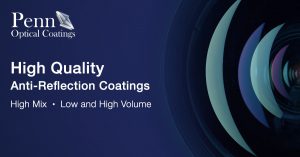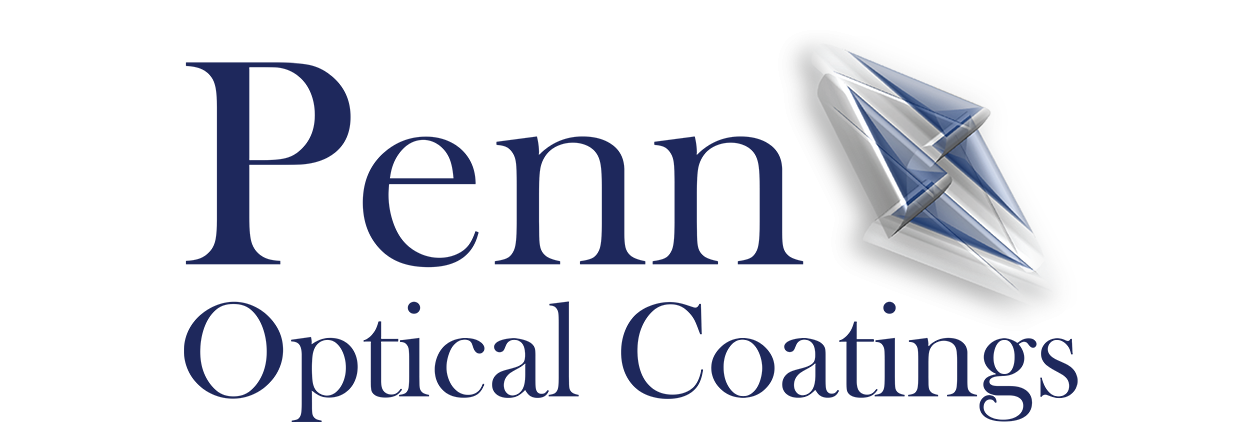How can I speed up the turnaround on coatings?
Start with standard specifications rather than creating unique ones requiring the optical coater to reinvent the wheel. Penn Optical Coatings has several hundred standard recipes to choose from, specifically in anti-reflection coatings.
Manufacturers should use optics that are in a common diameter for existing tooling. An unusual size can require at least 4 weeks in tooling, with pass-through costs attached. Our common diameter measurements are as follows:
(mm) 2, 3, 4, 5, 6, 9, 10, 12.5, 12.7, 15, 18, 30, 35, 40, 50, 75, 100, 150
(in) ¼, ½, ¾, 1, 2, 3, 4, 5, 6, 8, 10
Lastly, a faster quote request will lead to faster coating and turnaround. Penn is working towards quoting within 3 days as part of our ISO certification commitment and key targets. We are currently running at 3 weeks for standard production lead time.
What kind of materials can Penn coat?
Penn can coat fused silica, all visible glass types, ceramic glass (Zerodur), color filter glass, germanium, silicon, calcium fluoride, zinc sulfide (Cleartran), zinc selenide, and plastics.
In addition, a material that Penn has seen a lot of interest and success in is sapphire. It stands up to a lot of abuse and MIL environmental specifications. Sapphire has fewer restrictions than other materials, and all chemical processes can be used for cleaning. It is also a material that, if something goes wrong, you can chemically remove the coating without impacting the sapphire substrate. Ultimately, this removes a good deal of risk.

Anti-Reflection Coatings Built for the Extremes
Penn is a proud partner for fabricators that need durable AR coatings capable of withstanding extremes in temperature and humidity.
Discuss Your Needs
When would an optical fab shop look outside their region for a coating partner?
When optical fabricators look outside their region for new levels of quality and precision and less risk, they look to partner with a trusted and reliable coating provider with a proven track record. Some fabricator shops will provide basic coating services but should also have an optical coating partner for more exotic coating types. A good partner will have the expertise to troubleshoot the process with you.
I hear a lot of talk about 3D printing of tooling. Is that appropriate for this type of work? What questions should they be asking about tooling?
All tooling to date is machine, but 3D printing will eventually come into play. Due to sizing and precision, coating technology may not yet have the required range, resolution, and tolerances, especially when working with micro-optics. Penn is always looking for ways to innovate tooling to make the process safer, less risky, and easier to handle – reducing overall cost and turnaround.
If you’re ready to discuss your coating needs, contact us with your project details and specifications. Let’s talk through your next project.
Want to stay up to date with the latest at Penn Optical Coatings? Follow us on LinkedIn!
